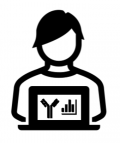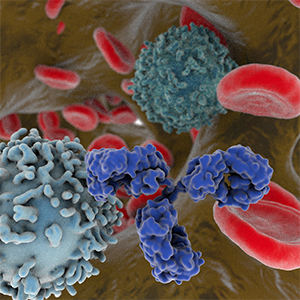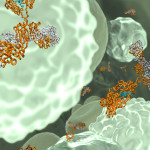Post written by Raquel Barroso Ferro, University of Aberdeen
 Regular exogenous insulin injections, monitoring food and activity levels, increased risk of developing heart and kidney disease. These are some of the many challenges faced by people with type 1 diabetes (T1D), an autoimmune disease where the body’s own immune cells destroy its insulin-producing beta cells. This chronic condition affects over 540,000 children worldwide according to a leading UK charity, and is the second most common childhood disease in the US after asthma (1). Current estimates place a global increase in incidence of 2-5% every year (2), highlighting the increasing number of individuals having to physically, emotionally, and financially bear this burden and the need to develop therapeutics that can prevent, cure or improve the management of this condition.
Regular exogenous insulin injections, monitoring food and activity levels, increased risk of developing heart and kidney disease. These are some of the many challenges faced by people with type 1 diabetes (T1D), an autoimmune disease where the body’s own immune cells destroy its insulin-producing beta cells. This chronic condition affects over 540,000 children worldwide according to a leading UK charity, and is the second most common childhood disease in the US after asthma (1). Current estimates place a global increase in incidence of 2-5% every year (2), highlighting the increasing number of individuals having to physically, emotionally, and financially bear this burden and the need to develop therapeutics that can prevent, cure or improve the management of this condition.
Development of drugs that can delay the onset of T1D is ongoing. One such drug is teplizumab (hOKT3 γ1(Ala-Ala)), a humanized anti-CD3 monoclonal antibody that has been engineered to have reduced Fc receptor binding. Teplizumab works by modulating T cells, which are immune cells believed to be key players in the destruction of beta cells (3). Maintaining the remaining activity of the beta cells and enabling self-blood glucose control without the need for exogenous influence is critical to controlling the disease.
Results of a Phase 2 study (TrialNet TN10, NCT01030861) of teplizumab reported in 2019 were very promising (4). This randomized, blinded trial investigated if a single two-week course of treatment with teplizumab could delay or prevent the onset of T1D in high-risk individuals that were without a clinical diagnosis of T1D. The researchers observed that over the course of approximately 7 years (July 2011 to November 2018) teplizumab was able to delay the onset of T1D. Furthermore, this trial provided additional evidence of the importance of the T-cell mediated response for the onset of T1D, suggesting the value of using immunomodulation to affect disease development.
Sims et al. (5) extended the follow-up of participants in the original study, and have now reported that the effects persisted in the initial participants who received teplizumab. The median time to onset of T1D was more than double in participants who received teplizumab compared to those who received the placebo (~5 vs 2 years, respectively). Moreover, they observed improvements in beta cell function and, in some, a partial reversal in the decline of insulin secretion. Despite using a small cohort (total study enrolment = 76 participants) and a single 14-day course of drug, the results of this study form the foundation for exciting work in the future to actively prevent the onset of this lifelong condition whose prevalence only seems to be increasing.
A biologics license application for teplizumab for the delay or prevention of clinical T1D in at-risk individuals is undergoing priority review by the U.S. Food and Drug Administration, and their first action on the application is expected by July 2, 2021. The European Medicines Agency is evaluating a marketing authorization application for teplizumab.
References
1. Menke et al. (2013). The prevalence of type 1 diabetes in the United States. Epidemiology 2013;24:773-774.
2. Moobaseri et al. (2020). Prevalence and incidence of type 1 diabetes in the world: a systematic review and meta-analysis. Health Promot Perspect. 2020; 10(2): 98–115. DOI: 10.34172/hpp.2020.18.
3. Gaglia J, Kissler S. Anti-CD3 Antibody for the Prevention of Type 1 Diabetes: A Story of Perseverance. Biochemistry. 2019 Oct 8;58(40):4107-4111. doi: 10.1021/acs.biochem.9b00707.
4. Herold et al. (2019). An Anti-CD3 Antibody, Teplizumab, in Relatives at Risk for Type 1 Diabetes. N Engl J Med 2019; 381:603-613. DOI: 10.1056/NEJMoa1902226.
5. Sims et al. (2021). Teplizumab improves and stabilizes beta cell function in antibody-positive high-risk individuals. Science Translational Medicine. 13 (583); eabc8980. DOI: 10.1126/scitranslmed.abc8980.

 The Friedrich Alexander University in Erlangen (Germany) is looking for PIs working in the AIRR-seq space to take on intern students. The internship should be a short scientific project spanning 8 weeks to 6 months. The application process starts in March and the internship is expected to start in October to December. You can read more information about it at
The Friedrich Alexander University in Erlangen (Germany) is looking for PIs working in the AIRR-seq space to take on intern students. The internship should be a short scientific project spanning 8 weeks to 6 months. The application process starts in March and the internship is expected to start in October to December. You can read more information about it at 

